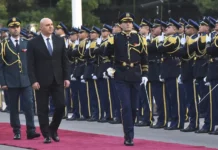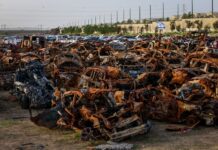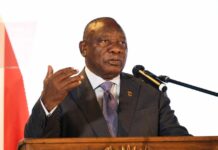Any probing discussion and analysis of the strategic and political situation in the Middle East must take the actions and pronouncements of the following actors into consideration: first and foremost Russia, next the position of Iran with its Revolutionary Guard and the Pakistani and Afghani Shiites militias, next the Assad government and then Hezbollah, and finally Israel. In an additional tier of importance are Egypt, Saudis Arabia, Jordan and even Isis in the Sinai. At this point I want to concentrate on the analysis and probability of the Next War between Israel and Hezbollah and directly or indirectly with the Assad Regime and Hamas in Gaza. Russia is the most important Super Power in this equation.
In the analysis of the Yom Kippur War in 1973 it was argued by some that Israel and the World did not know that Egypt and Syria were preparing for war. The argument was that in order to engage in a preventive strike one needed a good reason to go to war. For Israel this was particularly true with respect to the United States. Gold Meir, the then Prime Minister, decided not to authorize a preemptive strike and therefore the war lasted much longer with heavier losses for Israel.
Today Israel is confronted in the north with an enemy that has mass destructive capabilities possessing over a hundred thousand short range, middle range and even long range missiles that can reach the whole country including the Negev and Dimona in the Negev. This brings me to an ethical, psychological and political question – if someone continuously threatens to harm you and even kill you do you have the obligation and the right to attack him? Hassan Nasrallah , leader of Hezbollah , has threatened Israel for many years with destruction and death. So have the leaders of Iran, Syria and Hamas.
At this particular point in time Hezbollah is the imminent danger group threatening Israel. The Israeli Defense Forces (IDF) have done well and very well when they exercise the doctrine of First strike initiative rather than wait and give the enemy the option to strike first. Does Israel have sufficient cause now to strike Hezbollah in Southern Lebanon? Does Israel have the will to change its strategic doctrine now to punish Hezbollah in such a way that it will not be able to come back in a few years and resume its attacks as it has in the past in Lebanon and Hamas in the Gaza Strip? The answers are not a simple yes or no.
There are several elements that the Israeli decision makers have to take into account if they decide to preempt a massive attack against Hezbollah. A very important element is Israeli’s capabilities to intercept hundreds if not thousands of incoming missiles from southern Lebanon. According to the IDF (Israel Defense Forces) and the government Israel’s intercept capabilities is extremely high- 90% success due to the Iron Dome and other defense capabilities- nevertheless many missiles will come through and cause destruction and casualties. The decision makers have to keep in mind that the public’s ability to absorb punishment is low. The Israeli public is accustomed to and demands from its military a quick and successful victory. It does not look favorably on a protracted conflict.
Another crucial element in deciding on a preemptive strike is world public opinion and particularly that of the United States. Israel needs to make the outside world understand that Hezbollah’s fighters and their equipment including the missiles are embedded among the local population in Southern Lebanon and that this is the reason for relatively high civilian casualties. As good as the Israeli intelligence is and despite the fact that the Israeli air force is probably the best force in the world when it comes to avoiding civilian casualties there will be casualties since not all the local people leave their homes in spite of warnings by the military to leave since there are missiles hidden in their homes and these will be attacked. The United Nations observers on the border between Israel and Lebanon and on the Golan Heights bordering with Syria know all of this as do the leaders of the major powers and yet the political repercussions around the world will accuse Israel of aggression and killing civilians. This is an important political cost that those who make the decisions in Israel must evaluate.
A crucial element in the decision to preempt is the military’s evaluation of its capacities to execute a quick, clean victory. While the heavy emphasis in the fighting will rely on the air force it is clear that ground forces are needed to terminate the objective. There will be house to house fighting and this causes many casualties. There is an imbalance in the capabilities of the IDF between the air force and the ground forces with the first being better organized and equipped to do its job. And this factor must be analyzed by the decision makers.
A fourth and very important rather new factor to consider is the position of Russia vis-à-vis the entire Middle East in relation to Hezbollah and Israel. Many elements impinge on Russians position in the area. The most important one is the fact that the United States has basically abandoned the Syrian area to both Iran and Russia and they are doing whatever they want to do in that sphere which of course causes great concern for Israel. According to Dr. Dmitry Adamsky, one of Israel’s experts on Russian strategic thinking in the Middle East (Foreign Affairs, October 6 ,2017) Moscow will want to take advantage of a future war between Israel a and Hezbollah by trying to influence Israel by not defeating Hezbollah catastrophically or by influencing Hezbollah, less likely in my view, not to destroy badly Israel’s civil defenses causing panic among the public. Russia has an interest in showing Israelis the limits of their own power by interfering in the fighting and not permitting the Israelis to do as they please.
According to Maj. Gen. Amir Eshel, Israel’s former Chief of the air force , in an all-inclusive excellent article in the Haaretz newspaper of August 24, 2017, Netanyahu’s (Israelis Prime Minister) significant achievement, in spite of actively engaged in disrupting the transfer of tie-breaking weapons system to Hezbollah via Syria and Lebanon, has been able not getting involved in the upheaval in the Middle East and the Syrian Civil War. Israel is trying to prevent war with her neighbors but given all the circumstances mentioned here war can break out from one day to the next, without warning.


























